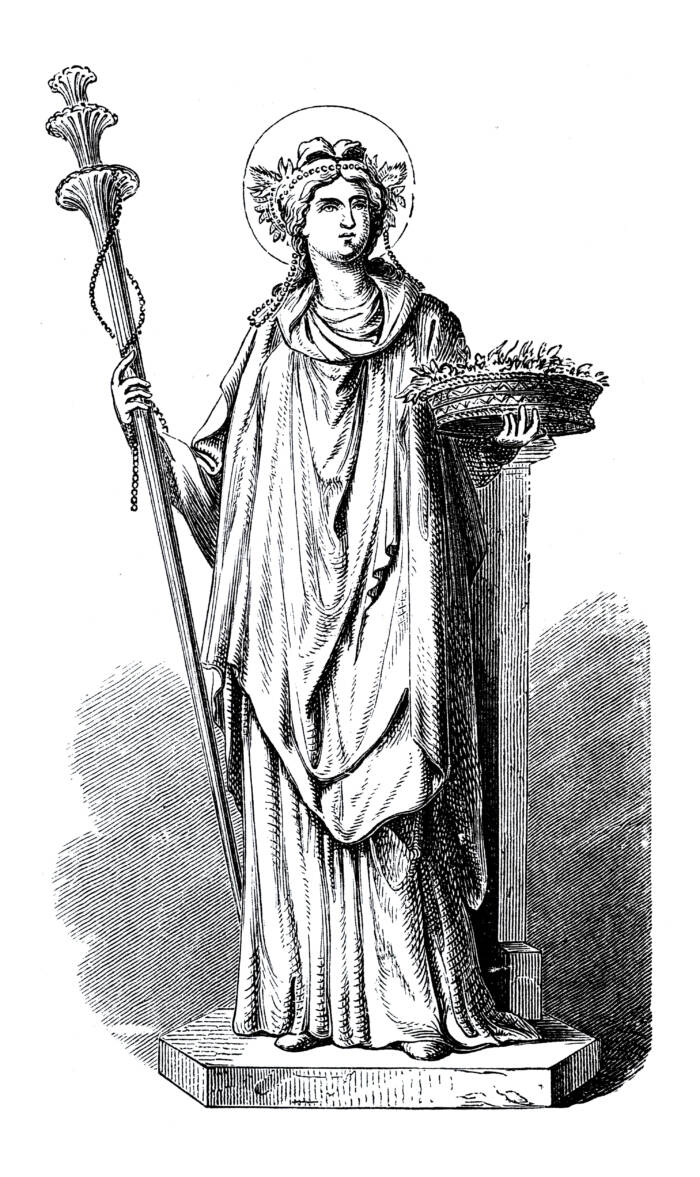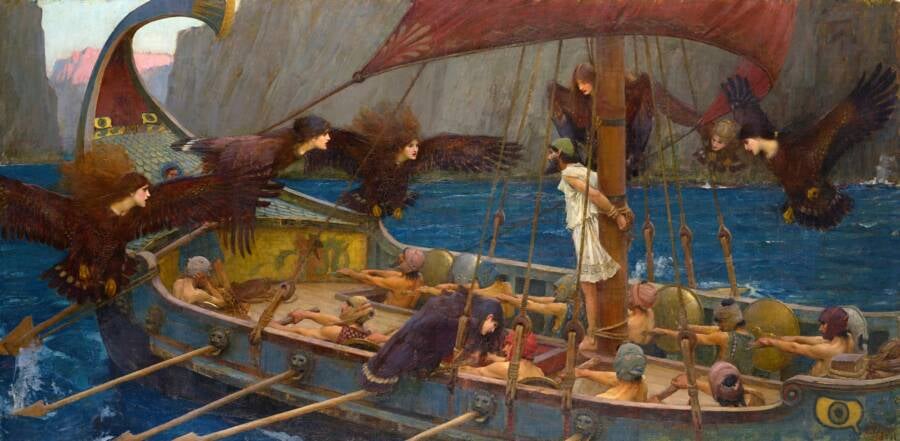Demeter, Greek Goddess Of The Harvest And Agriculture

bilwissedition Ltd. & Co. KG/Alamy Stock PhotoAn image of the ancient Greek goddess Demeter.
Demeter, revered as the Greek goddess of agriculture, grain, and the fertility of the earth, was one of the daughters of the Titans Cronus and Rhea, and likewise the sister of Olympian gods Zeus, Poseidon, Hestia, Hera, and Hades. Demeter’s influence extended beyond just agriculture as well — she was strongly associated with the nurturing aspects of motherhood and the cycles of life and death.
The most famous myth involving Demeter is the abduction of her daughter Persephone by Hades, the god of the underworld. According to the legend, Hades seized Persephone while she was gathering flowers, then took her to his domain. Demeter, overcome with grief, searched tirelessly for her daughter at the expense of attending to her duties.
As a result, the earth became barren and famine spread among the humans. Eventually, Zeus intervened, and it was decreed that Persephone would spent part of the year with Hades and the remainder with Demeter, bringing about the changing of the seasons.
It is also said that during her search for Persephone, Demeter granted the Sirens wings so they could aid in the search. When they failed to find Persephone, however, Demeter grew angry and turned the Sirens into monstrous, bird-like creatures. The Sirens eventually settled on an island, where their enchanting songs lured soldiers to their doom.

Public DomainUlysses and the Sirens by John William Waterhouse (1891).
Given her status as the Greek goddess of agriculture, it should come as no surprise that worship of Demeter spread across the Greek world, with numerous temples and sanctuaries dedicated to her worship. One of the most significant sites is the sanctuary at Eleusis, located near Athens.
The sanctuary was at the center of the Eleusinian Mysteries, secretive religious rites held annually that celebrated the myth of Demeter and Persephone. Those mysteries were considered among the most sacred rituals in ancient Greece, many of which involved visions and conjuring the afterlife.
The Lesser Mysteries, held in the spring, served as a preparatory stage for initiates, focusing on purification and the promise of greater revelations. The Greater Mysteries, conducted in the fall, were more elaborate and included the central rituals, culminating in a dramatic reenactment of the myth of Demeter and Persephone.
However, many of the specific details of the Mysteries remain lost to time, given that initiates were sworn to secrecy under the penalty of death should they share details of the rituals. Much of what is known about the Eleusinian Mysteries is derived from remnants of decorated pottery and other artifacts recovered from the site over the years.





